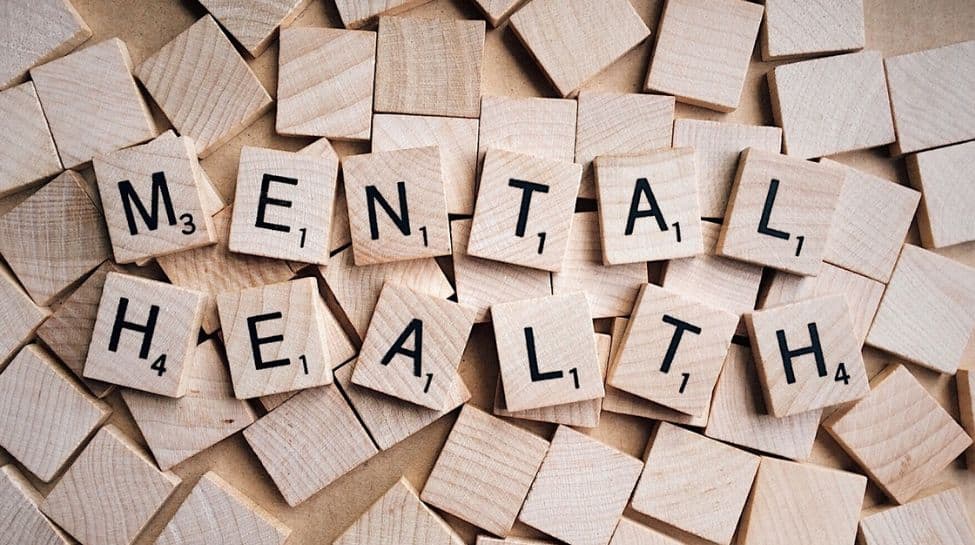Healthcare is experiencing a seismic shift, primarily induced by the rapid innovation and enhanced capabilities of Artificial Intelligence (AI). One of the most significant advancements in the field has been its integration with Voice-based AI technology. This ground-breaking software, capable of analysing vocal patterns and identifying early signs of various mental health conditions, has the potential to provide more timely and precise diagnoses, amplify the patient engagement, and entirely transform the field of psychotherapy.RustomLawyer, Co-Founder& CEO, Augnito shares how Voice AI helps in mental wellness and maintaining mental health.
The Burgeoning Crisis of Mental Health how Voice AI helps in mental wellness and maintaining mental health
According to the Ipsos Global Health Service Monitor 2023 survey, mental health issues are perceived as the most significant challenge confronting the population of over 30 major global regions. A report from the World Health Organization (WHO)in September 2022 also revealed that 15% of working-age adults live with a mental disorder. Apart from the alarming psychological implications, these trends also have grave economic ramifications. The same WHO report indicated that depression and anxiety alone cost the global economy around US$ 1 trillion per annum, primarily due to a drop in productivity levels.
In 2020, the global prevalence of anxiety and depression increased by a massive 25%, according to research from the World Health Organization. On the flip side, it wasreportedthat47%ofdevelopednationslived inamentalhealthworkforceshortageareain2022–emphasizing the critical need for more practitioners and updated solutions.
The Advent of Voice AI in Mental Health
Voice AI technology, underpinned by complex algorithms, interprets and analyses human speech and identifies patterns and nuances indicative of specific health conditions. In the context of mental health, this technology can potentially detect subtle shifts in a person’s speech, such as tone, pitch, speed, and other vocal characteristics, which may signal underlying mental health conditions. This breakthrough has opened up fresh possibilities for early detection, diagnosis, and treatment of mental health disorders, paving the way for a more proactive and patient-focused approach to mental healthcare.
The Potential of Voice AI
Mental health is a sophisticated field that necessitates a nuanced and personalised approach. Traditional methods of diagnosis and treatment often hinge on patient self-reporting and clinical observations, which can be subjective and inefficient. This is where AI-based voice recognition technology can make a significant difference. By simultaneously augmenting physician capabilities and empowering patients with self-detection and triaging capabilities, it can bridge the gap – creating a more comprehensive and robust care ecosystem.
An Accessible Early Warning System
Mental health disorders often develop gradually over time, with subtle changes in behavior and speech that may go unnoticed until the condition has significantly progressed. By analysing vocal patterns, AI can detect early signs of mental health conditions, allowing for preventive interventions before the condition worsens. This can potentially reduce the severity and duration of mental health conditions, and improve treatment outcomes, and Mental health disorders often develop gradually over time, with subtle changes in behavior and speech that may go unnoticed until the condition has significantly progressed. By analysing vocal patterns, AI can detect early signs of mental health conditions, allowing for preventive interventions before the condition worsens. This can potentially reduce the severity and duration of mental health conditions, and improve treatment outcomes, and even mental cases.
Enhancing Patient Engagement
Voice AI technology can augment patient engagement in psychotherapy by providing real-time feedback on a patient’s vocal patterns during therapy sessions. Such insights enable therapists to gain a better understanding of their patients and tailor their therapeutic strategies accordingly.
Accuracy in Detection
Byscrutinisingvocalbiomarkers, AI can furnish objective and quantifiable data about a patient’s mental state. These biomarkers can then be utilised to monitor specific symptoms and parameters of mental health conditions such as depression, anxiety, and post-traumatic stress disorder (PTSD).
Empowering Patients
AI can also empower patients to take an active role in their therapy process. By providing them with feedback on their vocal patterns, this technology can help patients gain insights into their emotional state and understand the impact of therapy on their mental health. This can motivate them to actively participate in their recovery.
Continuous Monitoring
The integration of AI-based voice recognition technology with other digital health tools, such as wearable devices (smartwatches, rings, etc.) and telehealth platforms, is progressing at a rapid pace.This can enable the continuous monitoring of mental health, providing real-time feedback to both patients and clinicians and allowing for timely intervention when needed.
According to Global Market Estimates, the global AI in Mental Health Market is projected to grow at a CAGR value of 39.1% until 2027. Several companies and research institutions have already begun to harness the potential of AI-based voice recognition technology in mental healthcare. For instance, one San Francisco-based organisation offers an AI solution that analyses a brief voice sample to identify, measure, and monitor the severity of stress, anxiety, and depression. Similarly, a Boston-based provider utilises AI to analyse thousands of unique characteristics recording. This technology can detect changes in mental health status, providing users with severity scores that can inform their healthcare decisions.
As we continue to explore and adopt AI voice recognition technology in mental healthcare, we should strive to balance the benefits of innovation with the need for ethical and responsible use of technology. By doing so, we can harness the power of AI while also ensuring the safety, privacy, and well-being of patients.


